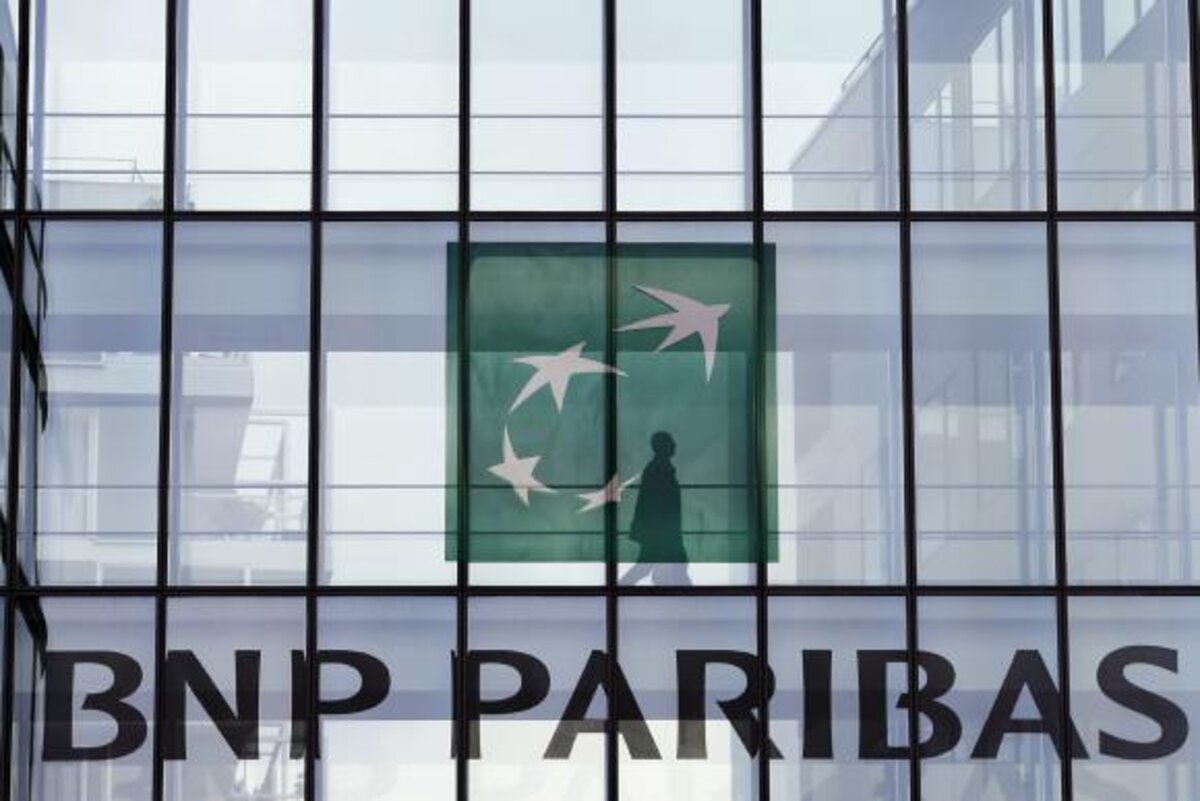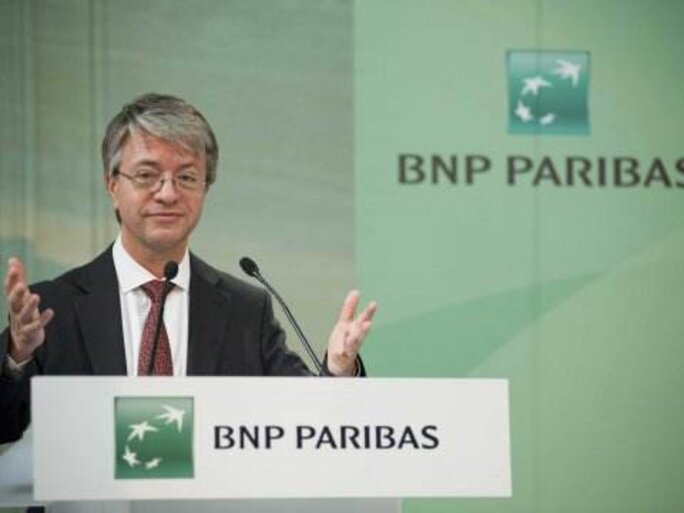While the Belgian political class is underway with its regular game of patience that is the formation of a new government, a move is underway to demand that the Belgian state, the largest shareholder of BNP Paribas (BNPP), ensures that the bank’s management make itself a civil party in a case against all those, at every level and including corporate officers past and present, whose actions have landed the bank’s shareholders with a fine to pay of 6.4 billion euros (8.8 billion dollars).
Ever since the punishment was delivered, in a settlement reached last month following long, drawn-out negotiations over BNPP’s violation of US sanctions against countries including Iran, Syria and Sudan, the bank’s management have reacted as if the case will cost nothing for anyone; neither for its clients, nor its staff, nor tax payers in France where it has its headquarters or those where it has large subsidiaries, notably in Belgium and Italy, and neither for its shareholders given that the dividend payment will be maintained - despite the fact that the amount of the fine represents more than one year’s profit. The only thing to suffer will be the capital ratio, because of a limited fall in the bank’s stock.

“But who does stock belong to if not the shareholders?” asks Paul Goldschmidt, a Belgian former director of Goldman Sachs, for nine years a director of the Financial Operations department of the European Commission’s Economic and Financial Affairs Directorate General. In an open letter entitled “The BNP Paribas Fiasco!” and addressed last week “to the competent Belgian authorities”, Goldschmidt writes: “By the size of its stake (10.28%), Belgium is the bank’s largest shareholder. In the light of the size of loss (+/- €640 million or 10.3% of the fine) to which should be added the cost of the temporary operational sanctions imposed by the United States as well as the unquantifiable damage to the bank’s reputation, it appears legitimate for Belgium to consider legal proceedings against those individuals who share responsibility for this major fiasco.”

“It seems to be all the more justified,” continues Goldschmidt, “that, in addition to violations of American laws and regulations, serious infringements of the bank’s internal rules, of the financial market regulations and of shareholder disclosure obligations have apparently taken place.”
Speaking to Mediapart, Goldschmidt, who is also a member of the advisory board of the think tank Thomas More Institute, suggested BNPP should follow the example of French bank Société Générale in its legal pursuit, as a civil party, of so-called “rogue trader” Jérôme Kerviel who was found guilty of losing the bank almost 5 billion euros in risky trading bets in 2007. “Let the BNPP base itself on the legal precedent of [the] Kerviel [case] and do the same thing as the Société Générale,” said Goldschmidt. In a civil court ruling, the Société Générale obtained a judgement that ordered Kerviel, who it questionably claims to have acted alone , to repay the bank 4.5 billion euros, which was later overturned on appeal with a retrial ordered.
But in the case of the BNPP, “the minimum prejudice is precisely established” underlines Goldschmidt. “In the present case, the responsibility of the actors – which has generated a prejudice in excess of €6.3 billion - should be much easier to establish since the bank has pleaded guilty in front of an American courts as part of the settlement of the case,” he writes in his open letter.
The BNPP’s guilty plea for what it itself described as “violations of certain US laws and regulations regarding economic sanctions against certain countries and related recordkeeping” – a corporate méa culpa which American banks have succeeded in avoiding despite collectively paying more than 100 billion dollars for their criminal behaviour in the subprime mortgage crisis – radically changes the legal context for investors who want to sue those responsible for the mistakes that they subsequently make their shareholders pay for. That is why Goldman Sachs chairman and CEO, Lloyd Blankfein, was opposed to what he and his likes see as the despicable precedent of guilty pleas by foreign banks, first the Crédit Suisse and now BNPP.
“Even if, as in the Kerviel case, it is highly unrealistic to expect that potential culprits would be able to indemnify the Bank (and its shareholders) for the full amount of the prejudice, their sentencing would serve as a far more powerful warning than any legislative or regulatory initiative that national or European authorities might take to improve the governance of the financial sector,” writes Goldschmidt.
'A seeming impunity of senior executives'
It appears highly unlikely that the management of BNPP would decide to take legal action that could point to the responsibilities of current or past directors, notably its ‘honorary’ chairman Michel Pébereau, the bank’s former CEO who was directly involved with the BNPP’s Swiss subsidiary at the origins of the operations that led to the bank’s prosecution in the US. Goldschmidt argues that it is therefore for the Belgian state, in its position of principal shareholder, to initiate legal action and to rally with it other major institutional shareholders.
In France, the managers of institutional investors’ funds, notably the insurance company of one major banking network, expressed their will to sue the BNPP for damages. But that is clearly not playing to the club rules of the French banking industry. However, a lead from the Belgian government could change all that. In a statement issued on May 16th, before the settlement was announced between BNPP and the US justice authorities, the Belgium-based Deminor Group, specialised in defending shareholders rights in a number of countries, underlined “the unique opportunity for the Belgian State to promote to good governance on the international markets”, pointing to the calamitous handling of the case by the BNPP management and in particular its clear refusal, for too long a period, to cooperate with the US authorities.
On that last point, one can reasonably advance that responsibility is shared by the French authorities, who regularly fly to the rescue of protégés without asking any questions, tainted by a hasty embracing of first- and second-degree anti-Americanism. A favourite theme of this defence of BNPP has been to challenge the supposed cross-border nature of the US charges. But here, Goldschmidt says BNPP’s directors made “a very bad analysis of the situation”, pointing out that, except for cash-in-bags, “the dollar has no means of leaving the United States”.
“When there is a payment made in dollars, the transaction is carried out in the United States”, he explains. This clearing system means there is therefore no such issue, and international law, whether rightly or wrongly, is unconcerned by it.
Armed with all these arguments, together with the further potential revelations that a judicial investigation might reveal, will Belgium wake up from its current situation of sleeping partner? Nothing is less certain. On July 17th, outgoing Belgian finance minister Koen Geens (who is looking after day-to-day matters while awaiting to formation of a new government, and which past experience tells us is unlikely to be a swift process), was questioned on the matter before the new parliament. He reminded Members of Parliament (MPs) that the Belgian state only became a shareholder in 2008, and this by accident after the forced sale to BNPP of the insurance and banking company Fortis after the latter collapsed during the 2008 financial crisis. Geens said the implications of the US fine were a matter for discussion at the shareholders’ annual general meeting. “Do not underestimate the importance of the general meeting,” he told MPs.
His position was surreal. The next shareholders’ general meeting in question will be held in May 2015, and experience proves that in corporate governance in continental Europe these are nothing but meetings of record, little upset by protests from the floor which, while occasionally loudly voiced, have no influence on voting decisions (witness that of the Société Générale following the Kerviel affair).
Furthermore, the behaviour of the two BNPP board members representing the Belgian state, one Flemish and the other Francophone, is perplexing. Emil Van Broekhoven, an honorary professor of economics at Antwerp University, and Michel Tilmant, a former CEO of Dutch banking and insurance business ING Group (who is rumoured to have got the post as Belgium’s representative on the BNPP board after lobbying by Belgian billionaire businessman Albert Frère), both claim, while arguing their independence, that they are accountable to no public office. “We do not report back to the [Belgian state’s Federal Holding and Investment Company] SFPI and no more so to the ministry of finance or anyone else,” bluntly declared Emil Van Broekhoven in a recent interview with Belgian daily L’Echo. “We cannot share things that are not made public,” he added. More surrealism. So the independence of these so-called independent board members is dependent upon the BNPP management, and not the shareholders to whom they owe their place on the board.
“I dare not imagine that, once appointed, a board member designated by Albert Frère would not have any accountability,” commented Belgian Green party MP Georges Gilkinet during parliament’s questioning of Koen Geens. The first decision of a new Belgian government, one that has come to its senses, should be to dismiss these two ‘independent’ representatives and to replace them with people who are decided to defend the interests as contained in their mandate.
As Paul Goldschmidt writes in the conclusion to his open letter, “to fail to react and deploy all prerogatives opened to shareholders would penalise the Belgian taxpayer for a second time. This would only reinforce the feeling, in Belgium and abroad, that senior executives in the financial sector benefit from a kind of impunity that contrasts indecently with the austerity measures imposed by public authorities on their citizens to restore budgetary equilibrium, to fight unemployment and to improve their purchasing power.”
-------------------------
- The French version of this article can be found here.
English version by Graham Tearse.


